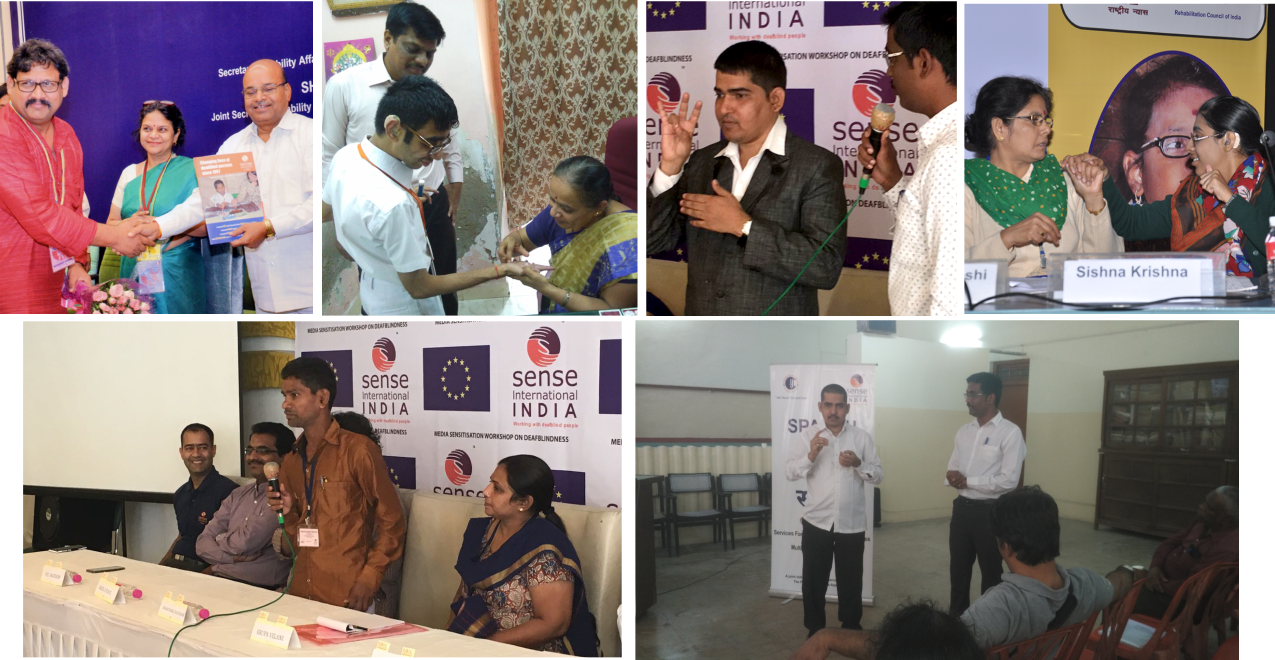ADVOCACY INITIATIVES
95% of what we learn about the world comes through sight and hearing. Children with deafblindness face unique challenges in communication, mobility and accessing information, making deafblindness one of the most isolating disabilities.
The UNCPRD, in Article-24- Education, Clause:3-c suggests provisions to ensure social and educational development of children with deafblindness.
Sense India and the need for Deafblind Advocacy
Advocacy forms an integral part of Sense India’s strategy for influencing others to make a bigger impact. It is a process through which we influence policy and practice to bring about positive changes in the lives of persons with deafblindness. In the process, persons with deafblindness and their families are empowered to take control of their lives, choices and are able to secure access to basic services and representation as full and active members of society. Sense India has been successful in developing services for children with deafblindness, initiating human resource development and representing persons with deafblindness in the mainstream legislations and policy of the country.
Our advocacy work also aims to influence others about the rights of persons with deafblindness and their strong need for education and other entitlements. It starts with persons with deafblindness themselves and their abilities, challenges, rights, responsibilities, aspirations and expectations. Advocacy is essential because a well-informed person with deafblindness can be an effective self-advocate. We aim to ensure representation of persons with deafblindness in all policies, rules and legislations in all development processes within the country. We promote partner organizations, networks and other relevant stakeholders to be involved in advocacy for persons with deafblindness.
It is only due to our unrelenting advocacy that ‘deafblindness’ has been included as a unique disability under ‘multiple disability’ in the Rights of Persons with Disabilities Act 2016.
Sense India Advocacy Photo Gallery





